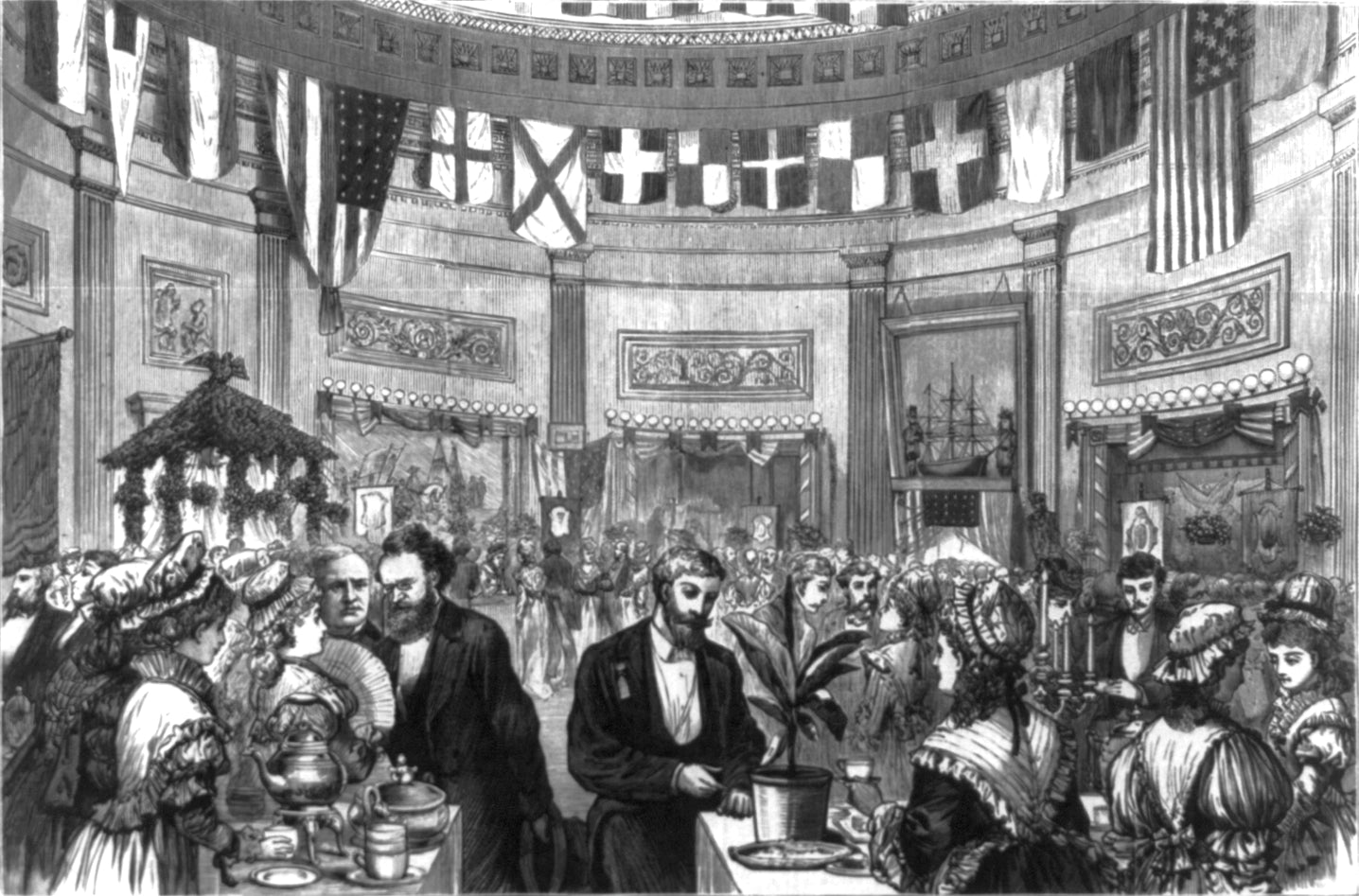Table of Contents
- The Rise and Demise of the Author of English Breakfast Tea
- Changes to Trade Lead to a Change in Recipe
- What Is English Breakfast Tea Now?
- How to Make English Breakfast Tea?
- English Breakfast Tea Benefits
- English Breakfast Tea Calories
- How Much Caffeine Is in English Breakfast Tea?
- Best English Breakfast Tea
The Rise and Demise of the Author of English Breakfast Tea
It is 1843, Chatham St, New York.
Richard Davies, a recently emigrated apothecary from Hull, London, boldly approaches a New York import agent eager for credit to start a business. As a newcomer and a stranger to the big smoke, he has no friends and no business references to support his request.
With just $150 and a plan to sell tea in neat, square-shaped packages wrapped in tin foil and covered with an exterior fancy wrapper and labelled on the end, Davies surprisingly convinces the agent to credit him $300 of stock.

Business is slow at first, but even so, Davies meets the agent's credit conditions to the letter. Davies faithfully purchases his tea solely from the New York import agent. Every Saturday he brings down his weekly receipts in cash.
Set on creating a blend named "English Breakfast Tea", Davies experiments with various blends, finally settling on a mix of a Congou, flowering Pekoe, and Pouchong, which he sells for the equivalent of $45AUD/kg.
The import agent is particular with product consistency and it's not long before the demand for his English Breakfast blend starts to skyrocket with orders coming from all over the country.

Word soon gets out and extraordinary attempts are made to find the secret to his English Breakfast blend. Assuming this "English Breakfast tea" originated from England, some write letters to England asking for supply.

Ironically, the reply states no Englishman has ever heard of such a tea as this "English Breakfast" blend.
Finally, after convincing one of their customers to purchase 5kg of Davies' highly favoured English Breakfast blend, a competing import agent sends a sample of the English Breakfast tea to tea experts in China to analyse and duplicate. The result is a success and chests of English Breakfast tea commence their frequent journey from China to the US.
Davies' success is great and being well on the road to fortune, he decides to cut trade ties with his original import agent and manage trade himself.
It is not long before the lack of support and sound advice from his original import agent eats away at Davies' success. Poor decisions are made, he rapidly loses money. Davies dies a poor man, spending the last years of his life peddling coffee from house to house.
Changes to Trade Lead to a Change in Recipe

In 1856, the second opium war leads to a trade embargo with China. Very quickly, Chinese tea, including the key "Congou" blend used in Davies' English Breakfast blend, disappears from the market. With demand still high, English and American markets are quickly flooded with teas from India and English Breakfast tea soon becomes a blend of Assam and Ceylon teas.
The new blend proves even more popular and has now become a staple in homes all over the world today, both in loose leaf tea and tea bags.
What Is English Breakfast Tea Now?
English Breakfast tea is the foundation of daily delight and a long, happy life.
It is the play of robust, rich, full-bodied flavour notes designed in a thousand different ways with just a few that hit the right note.
It plays with Assam, Ceylon, Congou, Keemun from India, Sri Lanka, China and Kenya in variations to excite even the sharpest of minds and leads to paths of health and generosity.
How to Make English Breakfast Tea?
Firstly you need a teapot, preferably a fine china teapot. This teapot must be coupled with fine china teacups and saucers. The vessel in which tea is consumed is paramount to the enjoyment of good tea.
Secondly, treat your brewing water with respect. Filter your water and bring it to the boil, fresh, of course. Never reheat water that has been sitting in your kettle. This water will be lifeless and dull, resulting in a disappointing brew and a sad day.
Pour a little hot water into your teacups. A cold cup will shock hot tea. A warm welcome is more desirable than fresh cake and scones.
Add tea leaves to the teapot, one teaspoon per cup plus one for the pot. Loose leaf tea is preferable unless you have other ways to show concern for those about to sip on your brew.
From a delicate height, poor your freshly boiled water over the loose leaf tea. This will wake your loose leaf tea and produce life in abundance.
Patience is key. A tea that is ready in seconds is no tea at all, merely floor sweepings good only for compost and dull guests. Brew for at least 3 minutes while you enjoy good conversation.
A little sugar and milk do not hurt, especially if your leaves are of moderate quality as this will mask any unpleasantness from the limited care shown to those leaves when harvested.
English Breakfast Tea Benefits
The benefits of English Breakfast tea are limitless and life-giving. From the relaxing, mood-enhancing theanine that clears your mind to the energising caffeine that perks you up, even cancer-inhibiting and heart-disease-reducing. To benefit from English Breakfast tea, you must consume consistently and frequently.
English Breakfast Tea Calories
If your English Breakfast tea is of good quality, no milk or sugar are needed and you will happily discover that there are no calories in English Breakfast tea. No calories in your tea means the calories in your chocolate can be enjoyed with less guilt. The average calories in a cup of tea and a slice of cake is much lower when divided between the two.
Tielka's very own English Breakfast, aptly named Tielka Breakfast, needs no milk or sugar and is the perfect partner to sweets or savouries.
How Much Caffeine Is in English Breakfast Tea?
Certainly not enough to overly concern oneself. English Breakfast tea should be consumed in the morning, hours before you lay your head to rest, with the effects of caffeine long gone after a blissfully pleasant day that began with a nice cup of tea.
For those particular beings among us, restfully know that in terms of caffeine, one cup of coffee is equivalent to two cups of English Breakfast tea.
Best English Breakfast Tea
There is no better English Breakfast tea than Tielka Breakfast tea. It will turn a sad day into an eternity of joy. When heaven looked upon Tielka, she gifted her with the best, the original, knowing that the path of those that would sip on this brew would lead to heaven in their hearts and mouths.




